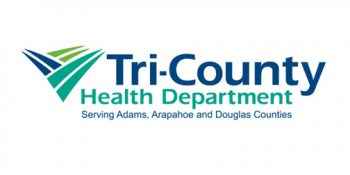Denver – Colorado U.S. Senator Michael Bennet joined a bipartisan group of 41 senators in a letter to Senate leaders requesting that any future legislation to address the Coronavirus Disease 2019 (COVID-19) crisis includes support for victims and survivors of domestic violence and sexual assault. In the letter, Bennet and the senators express concern over reports from service providers stating that abusers are using the crisis to isolate their victims, withhold financial resources, and refuse medical aid. In addition, rape crisis centers are seeing an increased need for services and many local law enforcement agencies are receiving an increased number of domestic violence-related calls.
“We appreciate that the Coronavirus Aid, Relief, and Economic Security (CARES) Act provided $45 million for domestic violence services funded through the Family Violence Prevention and Services Act and $2 million for the National Domestic Violence Hotline,” wrote Bennet and his colleagues. “While this funding provides critical resources, the legislation did not include any additional support for sexual assault or domestic violence-related programs funded through the Department of Justice. These programs deliver essential support that is particularly needed at this time, including support for sexual assault service providers, law enforcement, and transitional housing programs, as well as for organizations that address the needs of communities of color and underserved populations.”
Bennet also joined his colleagues in a letter of support for domestic violence programs authorized by the Family Violence Prevention and Services Act at the Department of Health and Human Services.
In addition to Bennet, the letter was signed by U.S. Senators Amy Klobuchar (D-Minn.), Lisa Murkowski (R-Alaska), Bob Casey Jr. (D-Pa.), Tammy Baldwin (D-Wis.), Richard Blumenthal (D-Conn.), Cory Booker (D-N.J.), Sherrod Brown (D-Ohio), Chris Coons (D-Del.), Catherine Cortez Masto (D-Nev.), Mike Crapo (R-Idaho), Steve Daines (R-Mont.), Tammy Duckworth (D-Ill.), Dick Durbin (D-Ill.), Joni Ernst (R-Iowa), Dianne Feinstein (D-Calif.), Kirsten Gillibrand (D-N.Y.), Kamala Harris (D-Calif.), Maggie Hassan (D-N.H.), Martin Heinrich (D-N.M.), Mazie Hirono (D-Hawaii), Tim Kaine (D-Va.), Angus King (I-Maine), Ed Markey (D-Mass.), Bob Menendez (D-N.J.), Jeff Merkley (D-Ore.), Chris Murphy (D-Conn.), Jack Reed (D-R.I.), Jacky Rosen (D-Nev.), Bernie Sanders (I-Vt.), Kyrsten Sinema (D-Ariz.), Tina Smith (D-Minn.), Debbie Stabenow (D-Mich.), Jon Tester (D-Mont.), Thom Tillis (R-N.C.), Tom Udall (D-N.M.), Chris Van Hollen (D-Md.), Mark Warner (D-Va.), Elizabeth Warren (D-Mass.), Sheldon Whitehouse (D-R.I.), and Ron Wyden (D-Ore.).
The letter is supported by leading organizations, including Break the Cycle; National Alliance to End Sexual Violence; National Coalition Against Domestic Violence; National Domestic Violence Hotline; and more.
The text of the letter is available HERE and below.
Dear Leader McConnell, Leader Schumer, Chairman Shelby, and Vice Chairman Leahy:
We write to respectfully request that any future legislation to address the ongoing coronavirus pandemic (COVID-19) provides funding to support victims and survivors of domestic violence and sexual assault, including through programs authorized by the Violence Against Women Act (VAWA). At a time when people who experience domestic violence are at increased risk, and requests for sexual assault and domestic violence-related services have sharply increased, additional funding for these programs is critical.
On Sunday, April 5, 2020, the United Nations Secretary-General António Guterres called for governments around the world to help address the “horrifying global surge in domestic violence” by making services for victims and survivors a “key part of their national response plans for COVID-19.” The United States must demonstrate leadership in this effort by continuing to provide the additional resources needed to support at-risk families and children.
Historically, instances of domestic violence have increased in times of national crisis—and this crisis may be particularly dangerous for people who experience domestic violence. Following the urging of public health officials, approximately 95% of Americans are now living under a stay-at-home order to help prevent the spread of the virus. But for many, home is not a safe place. Reports suggest that abusers are using COVID-19 to isolate their victims, withhold financial resources, and refuse medical aid. Rape crisis centers are seeing increased need for services and are confronting complex and difficult requests. And in communities across the country, local law enforcement agencies are receiving an increased number of domestic violence-related calls.
Domestic violence service providers across the country are facing funding and staffing challenges related to the pandemic and have seen an increased need for services including crisis intervention, shelter and transitional housing, and legal assistance. Rape crisis centers need funding to shift their services from in-person to virtual and meet the emergency needs of survivors. This strain on resources is expected to disproportionally impact traditionally underserved populations such as black and Latino communities as well as people who live in rural areas.
American Indian and Alaska Native communities in particular face disparities in shelter capacity and resources that have been exacerbated by the virus, and many of these communities already experience overcrowding in homes and a lack of sanitation services. We ask that Tribal sovereignty is acknowledged and that the federal government fulfill its trust responsibility to Indian Tribes by providing equitable resources to American Indian and Alaska Native communities to address domestic violence. Shelters and Tribal advocacy programs are often all that stand between safety and Native women going missing and/or murdered (MMIW). In addition, because many rural Tribal communities lack the necessary infrastructure to take advantage of internet-based options, we ask that there be outreach to these communities whether from the federal departments or through enlistment of technical advisers who have established relationships with many of these communities.
We appreciate that the Coronavirus Aid, Relief, and Economic Security (CARES) Act provided $45 million for domestic violence services funded through the Family Violence Prevention and Services Act and $2 million for the National Domestic Violence Hotline. While this funding provides critical resources, the legislation did not include any additional support for sexual assault or domestic violence-related programs funded through the Department of Justice. These programs deliver essential support that is particularly needed at this time, including support for sexual assault service providers, law enforcement, and transitional housing programs, as well as for organizations that address the needs of communities of color and underserved populations.
Therefore, we respectfully request that any future legislation to address COVID-19 include the following:
Support through the Department of Justice
- At least $100 million for the Sexual Assault Service Program;
- At least $225 million for VAWA STOP Grants with a priority on flexible funding for victim service providers, with at least 20 percent of the funding for eligible entities under 34 U.S.C. § 20124(c) and equitable distribution of funding between services for victims of domestic violence and sexual assault;
- At least $10 million for Grants for Outreach and Services to Underserved Populations; and,
- At least $40 million to VAWA Transitional Housing Assistance Grants.
- We also request that the matching fund requirements for the Victims of Crime Act grants be waived during this crisis to more quickly meet survivors’ needs.
Set-aside assistance for Tribes and Tribal Organizations
- VAWA programs:
- $22.5 million for grants to Tribal governments;
- $10 million to Tribes under the Sexual Assault Services Program;
- $3 million to Tribal jurisdiction; and
- $3 million to Tribal coalitions.
- Office of Victims of Crime: $16,765,000 additional set aside for Tribal governments.
As we work together to address the health, wellness, and economic security of all Americans, we urge you to support victims and survivors of domestic violence and sexual assault. Thank you for your attention to this important matter and your consideration of this request.
Sincerely,
SPREAD THE NEWS
COMMENT, Like, Follow & SHARE @I70Scout






